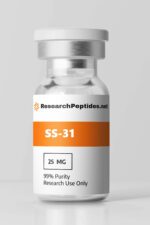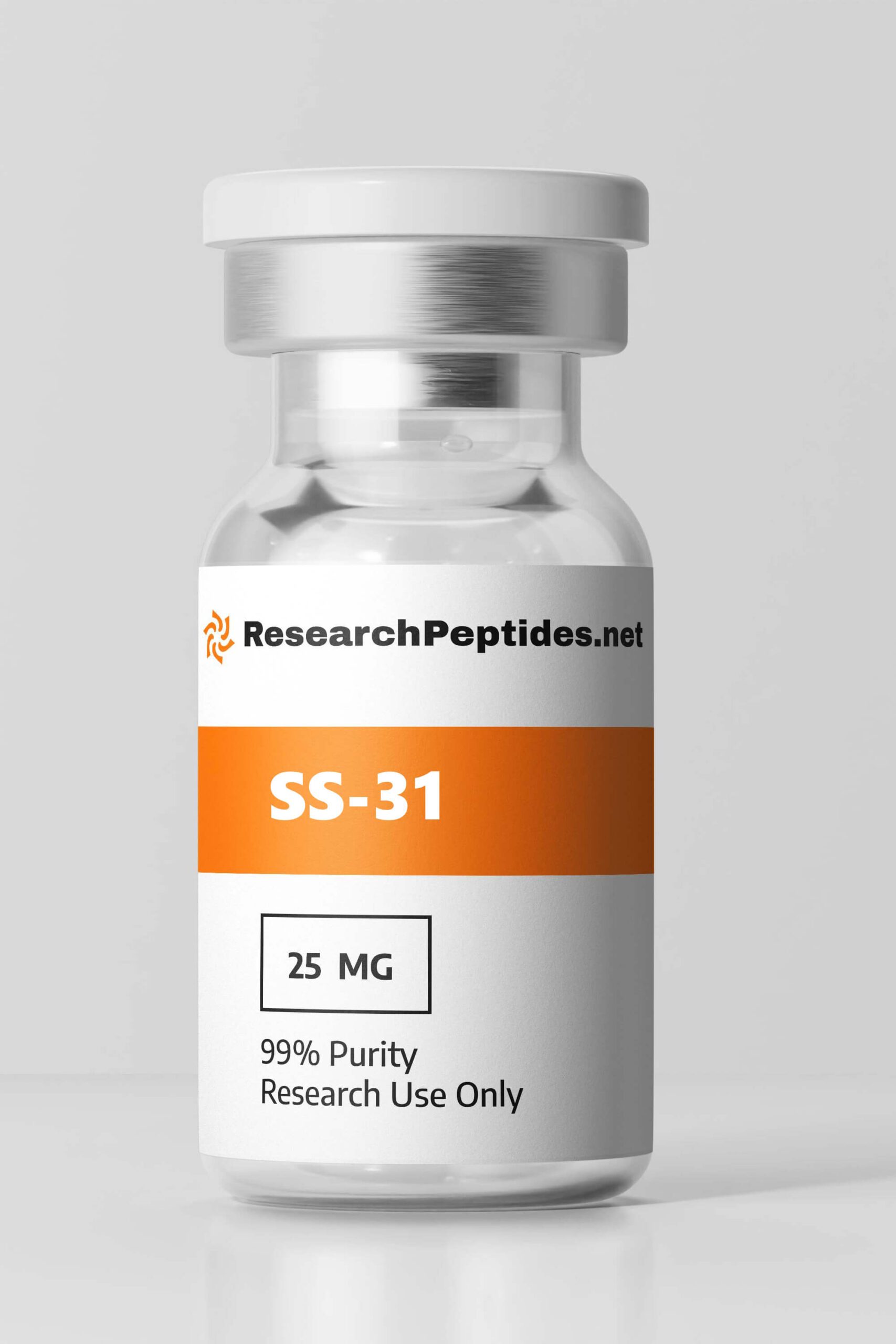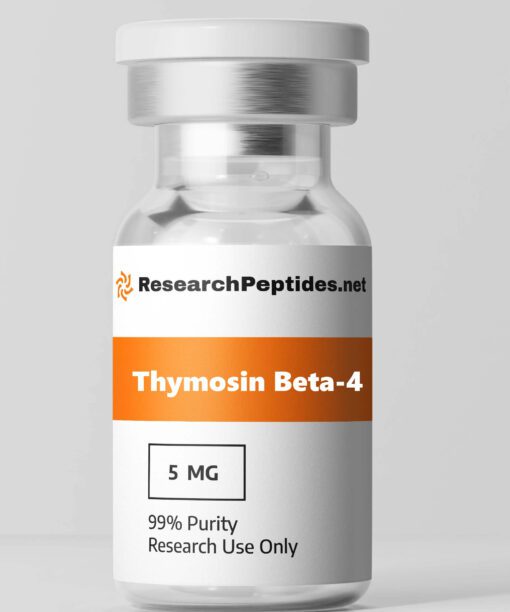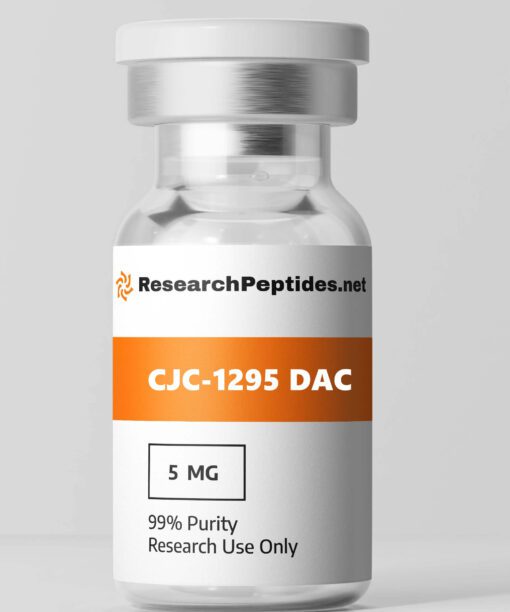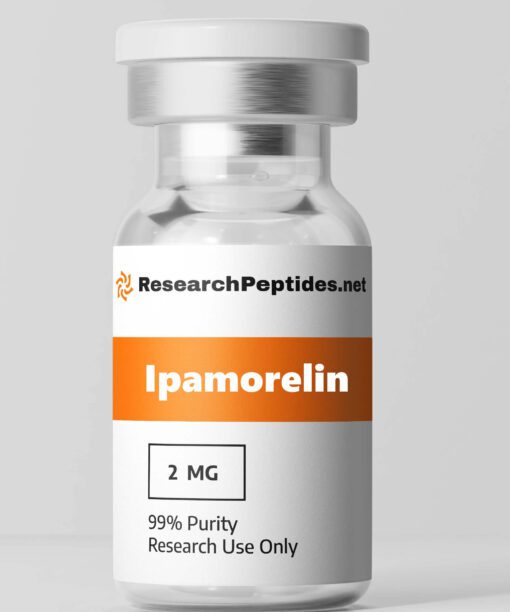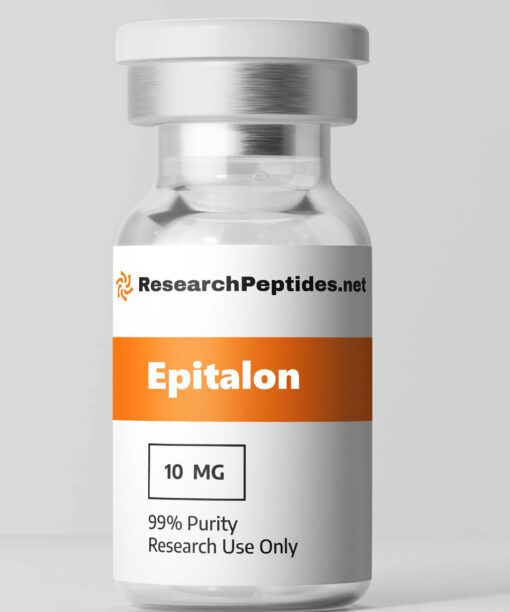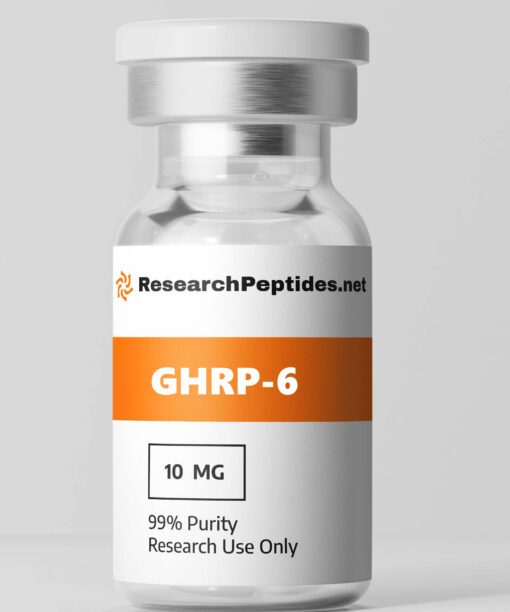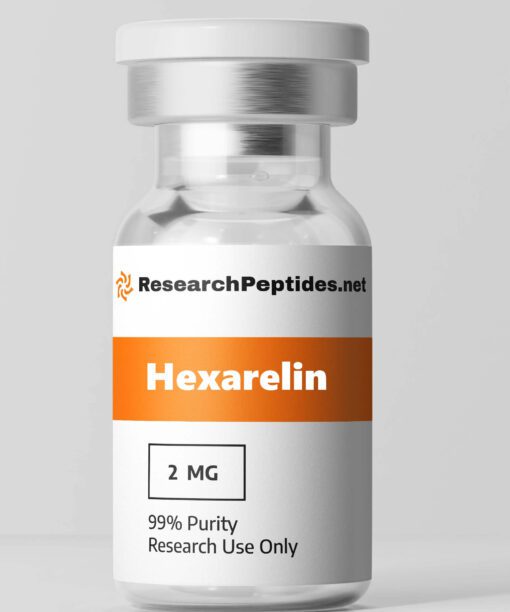Unlocking the Therapeutic Potential of SS-31: A Groundbreaking Study Reveals Promising Benefits for Mitochondrial Dysfunction and Age-related Diseases
Introducing SS-31: A Groundbreaking Research Product Transforming Lives
Backed by extensive studies, SS-31 has emerged as a game-changer in the field of medical research. With its remarkable properties, this revolutionary product holds immense potential to positively impact lives and pave the way for groundbreaking advancements in healthcare.
1. What is SS-31?
SS-31, also known as Bendavia or MTP-131, is a peptide compound that has gained attention in the field of mitochondrial research. It consists of a sequence of 10 amino acids and is designed to specifically target mitochondria, the powerhouse of the cell. SS-31 has shown promising potential in various non-human studies for its ability to protect mitochondria from oxidative damage and improve cellular function.
Mechanism of Action
SS-31 works by targeting cardiolipin, a unique phospholipid found in the inner mitochondrial membrane. Cardiolipin plays a crucial role in maintaining mitochondrial structure and function. However, cardiolipin can become peroxidized during oxidative stress, leading to mitochondrial dysfunction. SS-31 binds to cardiolipin and stabilizes it, preventing its peroxidation and subsequent damage to the mitochondria.
This interaction also helps restore proper electron transport chain function and reduces the production of harmful reactive oxygen species (ROS). SS-31 has shown potential therapeutic benefits in various disease models by protecting mitochondrial integrity and reducing oxidative stress.
Key Points:
– SS-31 is a peptide compound designed to target mitochondria.
– It interacts with cardiolipin to stabilize it and protect against oxidative damage.
– This mechanism helps restore mitochondrial function and reduce ROS production.
2. How Does SS-31 Work?
SS-31 exerts its effects by directly interacting with cardiolipin, a key component of the inner mitochondrial membrane. Cardiolipin plays a structural role and regulates several important processes within the mitochondria, including electron transport chain activity and ATP synthesis.
When cells are subjected to oxidative stress or other damaging conditions, cardiolipin can become peroxidized, leading to mitochondrial dysfunction. SS-31 binds selectively to cardiolipin and stabilizes it, preventing its peroxidation. This interaction helps maintain mitochondrial integrity and function.
Additionally, SS-31 has been shown to reduce the production of reactive oxygen species (ROS) within mitochondria. ROS are natural byproducts of cellular respiration but can become excessive under pathological conditions, causing oxidative damage to cellular components. By reducing ROS production, SS-31 helps alleviate oxidative stress and protects against further mitochondrial damage.
The unique mechanism of action of SS-31 in targeting cardiolipin and reducing oxidative stress makes it a promising compound for therapeutic interventions aimed at preserving mitochondrial function.
Key Points:
– SS-31 interacts with cardiolipin to stabilize it and prevent peroxidation.
– It helps maintain mitochondrial integrity and function.
– SS-31 reduces the production of reactive oxygen species within mitochondria.
3. SS-31 Benefits
The use of SS-31 in non-human research has demonstrated several potential benefits across various disease models and conditions. These benefits primarily arise from its antioxidative and anti-inflammatory properties as well as its ability to preserve mitochondrial function.
Antioxidative Properties
– SS-31 has been shown to reduce oxidative stress by stabilizing cardiolipin and preventing its peroxidation.
– By reducing reactive oxygen species (ROS) production, SS-31 helps protect cells from oxidative damage.
– This antioxidative effect may be particularly beneficial in neurodegenerative diseases such as Alzheimer’s or Parkinson’s disease, where oxidative stress plays a significant role in disease progression.
Anti-Inflammatory Effects
– Inflammation is a common feature of many diseases, and SS-31 has been shown to have anti-inflammatory properties.
– SS-31 can inhibit the activation of pro-inflammatory signaling pathways, reducing the release of inflammatory mediators.
– This anti-inflammatory effect may be beneficial in conditions such as cardiovascular disorders or autoimmune diseases where inflammation contributes to tissue damage.
Preservation of Mitochondrial Function
– SS-31’s ability to stabilize cardiolipin and protect mitochondria from oxidative damage helps preserve their function.
– This preservation of mitochondrial function can improve cellular energy production and overall cellular health.
– It may be particularly relevant in age-related conditions or metabolic disorders where mitochondrial dysfunction is implicated.
4. SS-31 Side Effects
In non-human studies, SS-31 has shown a favorable safety profile with minimal reported side effects. However, it is important to note that most studies have focused on short-term administration, and further research is needed to assess long-term effects.
Comparison with Similar Compounds
– Compared to other similar compounds targeting mitochondria, SS-31 has demonstrated a lower incidence of adverse reactions.
– Some compounds targeting mitochondria may cause gastrointestinal disturbances or liver toxicity, which have not been observed with SS-31.
– The specific structure and mechanism of action of SS-31 contribute to its favorable safety profile.
Potential Side Effects
While rare, some potential side effects reported in non-human studies include:
– Mild injection site reactions such as redness or swelling
– Transient changes in blood pressure or heart rate
– These side effects were generally mild and resolved spontaneously without intervention. It is essential for researchers to conduct thorough safety assessments and monitor for any potential adverse reactions when using SS-31 in non-human models.
5. Advantages of SS-31
SS-31, also known as Bendavia, is a promising compound that has shown numerous advantages in various research studies. One of the key advantages of SS-31 is its potent antioxidant properties. It has been found to specifically target and accumulate within the mitochondria, which are the powerhouses of our cells responsible for energy production. SS-31 can help prevent cellular damage and improve overall cell health by reducing oxidative stress and protecting mitochondrial function.
Another advantage of SS-31 is its ability to enhance cellular bioenergetics. Research has demonstrated that SS-31 can increase ATP production, the primary energy source for cellular processes. This boost in energy production can have significant implications in various disease conditions where mitochondrial dysfunction and energy depletion are observed.
In addition to its antioxidant and bioenergetic effects, SS-31 has also shown anti-inflammatory properties. Chronic inflammation plays a crucial role in developing and progressing many diseases, including cardiovascular disorders and neurodegenerative conditions. By reducing inflammation, SS-31 may help mitigate tissue damage and promote healing.
Furthermore, SS-31 has been found to have cytoprotective effects on different organs and tissues. Studies have demonstrated its potential in protecting against ischemia-reperfusion injury, which occurs when blood flow is temporarily restricted, followed by restoration. This protective effect makes SS-31 a promising candidate for therapeutic interventions aimed at minimizing tissue damage during surgeries or organ transplantation.
Advantages Summary:
- Potent antioxidant properties
- Enhances cellular bioenergetics
- Anti-inflammatory effects
- Cytoprotective against ischemia-reperfusion injury
6. SS-31 Research Topics
The peptide SS-31, also known as elamipretide, has garnered significant attention in the scientific community due to its potential therapeutic properties. Researchers have delved deep into understanding its mechanisms of action and potential applications. Here’s a more detailed look into the key research topics related to SS-31:
Mitochondrial Dysfunction: Mitochondria, often referred to as the powerhouse of the cell, play a pivotal role in energy production. Dysfunctional mitochondria can lead to a myriad of health issues. Research on SS-31 has shown promising results in its ability to enhance mitochondrial function.
Studies have delved into how SS-31 can act as a protective agent against the mitochondrial dysfunction observed in various diseases, from metabolic disorders to neurodegenerative conditions. SS-31 may help restore optimal mitochondrial function and energy production by targeting the inner mitochondrial membrane.
Oxidative Stress and Antioxidant Effects: Oxidative stress results from an imbalance between free radicals and antioxidants in the body, leading to potential cellular damage. SS-31 has been studied for its role in mitigating oxidative stress. Research indicates that SS-31 may bolster the body’s antioxidant defenses, thereby protecting cells from the damaging effects of free radicals. This antioxidant property can be crucial in preventing the progression of diseases where oxidative stress plays a significant role.
Inflammation and Immune Response: Inflammation is a natural response to injury or infection, but chronic inflammation can be detrimental. SS-31 has been examined for its anti-inflammatory properties. Preliminary studies suggest SS-31 might modulate the immune response, reducing excessive inflammation without compromising the body’s ability to fight infections. This balance can be particularly beneficial in conditions like autoimmune disorders or chronic inflammatory diseases.
Tissue Protection and Regeneration: Tissue damage, especially due to ischemia-reperfusion injury (when blood supply returns to tissue after a period of ischemia or lack of oxygen), can have severe consequences. Research on SS-31 has shown its potential cytoprotective effects on various organs and tissues. SS-31 might offer therapeutic benefits in conditions like heart attacks, strokes, and organ transplants by reducing cellular damage and promoting regeneration.
Therapeutic Applications: The potential therapeutic applications of SS-31 are vast. Given its multifaceted properties, researchers are exploring its use in a range of disease conditions. From cardiovascular disorders, where it might protect the heart from ischemic injuries, to neurodegenerative diseases like Alzheimer’s, where it could protect neuronal cells, the therapeutic promise of SS-31 is being rigorously investigated. Additionally, its potential to enhance the success rate of organ transplantation by reducing tissue rejection is also a topic of interest.
7. Future Research Directions for SS-31
The promising results obtained from previous studies have paved the way for future research directions regarding the use of SS-31. These directions aim to further explore the potential benefits and applications of SS-31 in various fields. Some of the future research directions for SS-31 include:
1. Clinical Trials:
Conducting clinical trials to evaluate the safety and efficacy of SS-31 in human subjects, with a focus on specific disease conditions where mitochondrial dysfunction and oxidative stress play a significant role.
2. Combination Therapies:
Investigating the synergistic effects of combining SS-31 with other therapeutic agents or interventions to enhance treatment outcomes in diseases characterized by mitochondrial dysfunction and oxidative stress.
3. Mechanistic Studies:
Further elucidating the underlying mechanisms through which SS-31 exerts its beneficial effects, including its interaction with mitochondria, cellular signaling pathways, and modulation of gene expression.
4. Optimization of Formulations:
Developing improved formulations or delivery systems for SS-31 to enhance its bioavailability, stability, and targeted delivery to specific tissues or organs.
8. SS-31 Before and After in Research
The research conducted on SS-31 has provided valuable insights into its potential benefits and mechanisms of action. Before the research on SS-31 began, there was limited understanding of its therapeutic potential and how it could impact cellular health. However, after extensive research efforts, several significant findings have emerged.
The studies have demonstrated that SS-31 can effectively target mitochondria and accumulate within these organelles. This localization allows it to exert its antioxidant effects directly at the site of oxidative stress, protecting mitochondrial function and preventing cellular damage. The before and after comparison in research shows a clear understanding of SS-31’s mechanism of action and its ability to improve cellular bioenergetics.
Furthermore, the research has highlighted the anti-inflammatory properties of SS-31, showcasing its potential to mitigate tissue damage caused by chronic inflammation. The before and after comparison also reveals the cytoprotective effects of SS-31 on different organs and tissues, particularly during ischemia-reperfusion injury.
Overall, the research conducted on SS-31 has transformed our understanding of mitochondrial-targeted therapies and opened up new avenues for potential therapeutic interventions.
9. SS-31 Cycle for Research
The use of SS-31 in research studies typically follows a specific cycle to ensure accurate and reliable results. This cycle involves several stages that researchers adhere to when investigating the effects of SS-31. The typical SS-31 research cycle includes:
1. Experimental Design:
In this stage, researchers plan their experiments by defining their objectives, selecting appropriate models or cell lines for study, determining dosage regimens, and establishing control groups for comparison.
2. Treatment Administration:
Once the experimental design is finalized, researchers administer SS-31 to their study subjects according to the predetermined dosage regimens. This may involve intravenous injections or other delivery methods depending on the specific requirements of the study.
3. Data Collection:
Data collection involves measuring relevant parameters or outcomes at specified time points during or after SS-31 administration. This may include assessing mitochondrial function, oxidative stress levels, inflammation markers, tissue damage, or other specific endpoints of interest.
4. Data Analysis:
After data collection, researchers analyze the obtained results using appropriate statistical methods to determine the significance and reliability of their findings. This analysis helps draw conclusions and identify any trends or patterns observed in the data.
5. Publication and Peer Review:
The final stage involves preparing research manuscripts for publication and submitting them to peer-reviewed journals. The manuscripts undergo rigorous evaluation by experts in the field to ensure scientific rigor and validity before being accepted for publication.
10. Best SS-31 Results in Research
The research conducted on SS-31 has yielded several notable results that highlight its potential as a therapeutic agent. Some of the best SS-31 results observed in research studies include:
1. Improved Mitochondrial Function:
Studies have consistently shown that SS-31 can enhance mitochondrial function by reducing oxidative stress and preserving mitochondrial integrity. This improvement in mitochondrial function has been linked to increased ATP production and improved cellular bioenergetics.
2. Protection Against Oxidative Stress:
SS-31’s potent antioxidant properties have been demonstrated in various research studies. It effectively scavenges reactive oxygen species (ROS) and prevents oxidative damage to cellular components such as lipids, proteins, and DNA.
3. Reduction of Inflammation:
The anti-inflammatory effects of SS-31 have been observed in multiple studies. It can suppress the production of pro-inflammatory cytokines and inhibit inflammatory signaling pathways, thereby reducing tissue inflammation and damage.
4. Enhanced Tissue Protection:
Research has shown that SS-31 can protect against ischemia-reperfusion injury in various organs, including the heart, liver, and kidneys. This protection is attributed to its ability to preserve mitochondrial function and reduce oxidative stress during the reperfusion phase.
These positive results highlight the potential of SS-31 as a therapeutic intervention for various diseases characterized by mitochondrial dysfunction, oxidative stress, and inflammation.
11. Where to Buy SS-31?
If you are interested in purchasing SS-31 for research purposes or potential therapeutic applications, it is important to ensure that you obtain it from reliable sources. Currently, several reputable suppliers and distributors of SS-31 cater to the scientific community’s needs.
One way to find reliable sources is by consulting with fellow researchers or experts in the field who have experience working with SS-31. They may be able to recommend trusted suppliers or provide guidance on where to purchase high-quality SS-31.
In addition, online platforms specializing in research chemicals and peptides often offer SS-31 for sale. It is essential to thoroughly research these platforms and verify their reputation before making any purchases. Look for reviews or testimonials from other customers who have previously purchased from these platforms to gauge their reliability and product quality.
Lastly, contacting pharmaceutical companies or research institutions directly may also provide information on where to buy SS-31. These organizations may partner with suppliers or distributors to facilitate the procurement process.
12. SS-31 for Sale
If you are looking to purchase SS-31 for your research or potential therapeutic applications, it is important to find reliable sources where it is available for sale. Several reputable suppliers and distributors offer SS-31 to meet the scientific community’s needs.
One way to find SS-31 for sale is by contacting specialized research chemical companies or peptide suppliers. These companies often provide a wide range of research compounds and peptides, including SS-31. Ensuring that the chosen supplier has a good reputation and adheres to quality control standards is crucial.
In addition to research chemical companies, pharmaceutical companies may also offer SS-31 for sale. Contacting these companies directly can provide information on availability and purchasing options.
Furthermore, academic institutions or research organizations may collaborate with suppliers or distributors offering SS-31 for sale. Consulting with fellow researchers or experts in the field can provide insights into potential sources.
When purchasing SS-31 for sale, it is essential to consider factors such as product quality, reliability of the supplier or distributor, shipping options, and any legal requirements associated with its procurement and use.
SS-31, a promising research product, has shown remarkable potential in various studies. Its effectiveness in combating oxidative stress and enhancing mitochondrial function has been well-documented. Furthermore, studies have demonstrated its ability to improve tissue repair and protect against age-related diseases. With its impressive results and minimal side effects, SS-31 holds great promise for improving human health and quality of life.
Frequently Asked Questions About SS-31 Peptides April 2024
Which peptide is good for anti-aging?
Epithalon, Sermorelin, Matrixyl, Argireline, and Palmitoyl Tetrapeptide 7 are among the top peptides recommended for anti-aging.
Is peptide T used today?
According to Staley, Woodruff supported and used Peptide T, but it ultimately proved ineffective and did not receive approval or continued use. The film suggests that it helped Woodruff, but it was a useless therapy.
What is the mechanism of sn2 mechanism?
The SN2 Reaction Mechanism involves the simultaneous formation of a carbon-nucleophile bond and the breaking of a carbon-leaving group bond, occurring through a transition state. The leaving group is then pushed out on the opposite side of the carbon-nucleophile bond, resulting in the desired product.
What is SS-31 peptide?
Elamipretide (also known as SS-31, d-Arg-Dmt-Lys-Phe-NH2) is a newly developed antioxidant that specifically targets mitochondria. This peptide, synthesized by Hazel H. Szeto and Peter W. Schiller, contains a dimethyl tyrosine residue, effectively neutralizing harmful oxygen radicals and preventing the oxidation of linoleic acid and low-density lipoproteins. This information was documented on November 20, 2019.
What is the best peptide for autoimmune disease?
Thymosin B4, also known as Tb4, is a peptide that offers various benefits, such as alleviating hair loss, reducing inflammation-related pain, and preventing muscle loss. It possesses strong anti-inflammatory properties and can also act as an antimicrobial agent. Additionally, it aids in enhancing the functioning of T-cells, thus supporting the proper functioning of the immune system.
Peptides Uncovered: Your One-Stop Shop for Peptide Research 2024
Explore a wide range of peptide forms, including amino acid polymers, combined peptides, IGF-1 Proteins, Melanotan compounds, and skincare peptides at our US Peptides Shop. Dive deeper into peptide science with our Buy Research Peptides platform. We also provide a selection of Laboratory apparatus for your research needs. Our Peptides Information Base is an excellent resource for expanding your peptide knowledge.
Author Info and References
[i] “ReCLAIM-2 Study to Evaluate Safety, Efficacy & Pharmacokinetics of Elamipretide in Subjects With AMD With GA.” Case Medical Research (March 27, 2019). doi:10.31525/ct1-nct03891875.
[ii] Szeto, Hazel H., Shaoyi Liu, Yi Soong, Dunli Wu, Shaun F. Darrah, Feng-Ying Cheng, Zhihong Zhao, Michael Ganger, Clara Y. Tow, and Surya V. Seshan. “Mitochondria-Targeted Peptide Accelerates ATP Recovery and Reduces Ischemic Kidney Injury.” Journal of the American Society of Nephrology 22, no. 6 (May 5, 2011): 1041–1052. doi:10.1681/asn.2010080808.
[iii] Mo, Yunan, Songyun Deng, Lina Zhang, Yan Huang, Wenchao Li, Qianyi Peng, Zhiyong Liu, and Yuhang Ai. “SS-31 Reduces Inflammation and Oxidative Stress through the Inhibition of Fis1 Expression in Lipopolysaccharide-Stimulated Microglia.” Biochemical and Biophysical Research Communications 520, no. 1 (November 2019): 171–178. doi:10.1016/j.bbrc.2019.09.077.
[iv] Escribano-Lopez, Irene, Noelia Diaz-Morales, Francesca Iannantuoni, Sandra Lopez-Domenech, Aranzazu M de Marañon, Zaida Abad-Jimenez, Celia Bañuls, et al. “The Mitochondrial Antioxidant SS-31 Increases SIRT1 Levels and Ameliorates Inflammation, Oxidative Stress and Leukocyte-Endothelium Interactions in Type 2 Diabetes.” Scientific Reports 8, no. 1 (October 26, 2018). doi:10.1038/s41598-018-34251-8.
SS 31 Peptide Research Peptides Scientists
Share The SS-31 Product Page
Product Usage: THIS PRODUCT IS INTENDED AS A RESEARCH CHEMICAL ONLY. This designation allows the use of research chemicals strictly for in vitro testing and laboratory experimentation only. All product information available on this website is for educational purposes only. This product has not been approved by the FDA for Human Use. Bodily introduction of any kind into humans or animals is strictly forbidden by law. This product should only be handled by licensed, qualified professionals. This product is not a drug, food, or cosmetic and may not be misbranded, misused or mislabeled as a drug, food or cosmetic.
Estimated Reading Time: 17 min read

